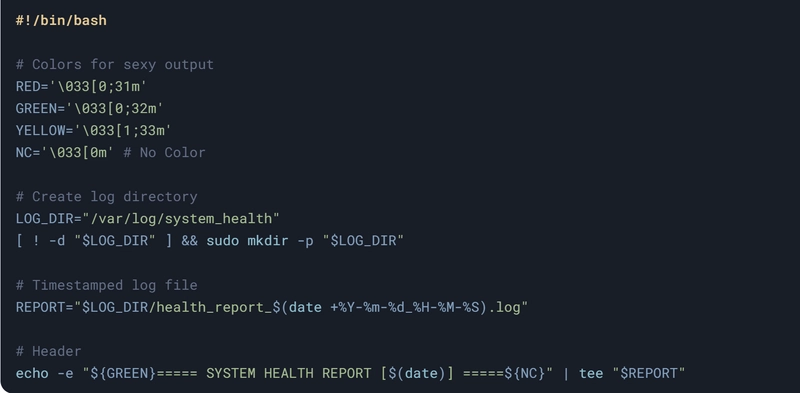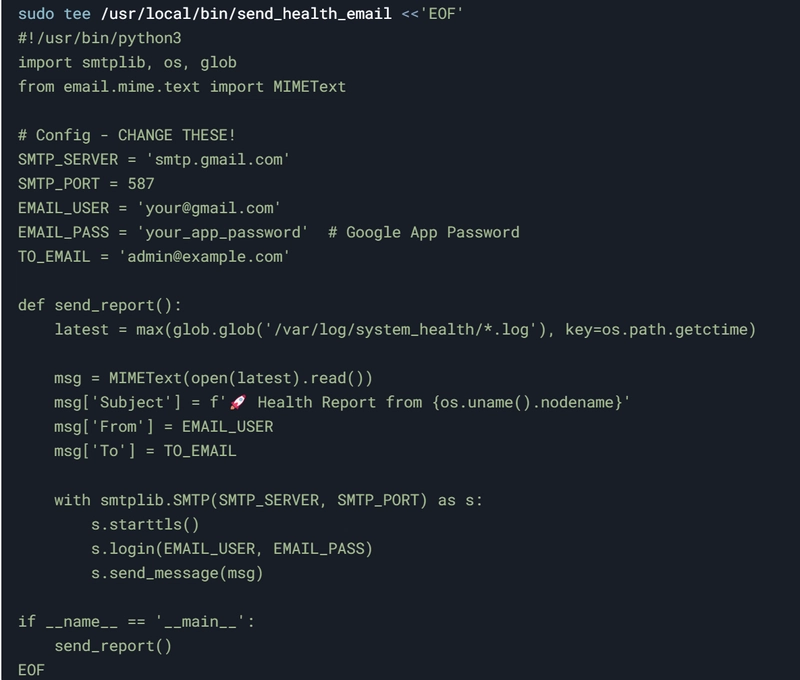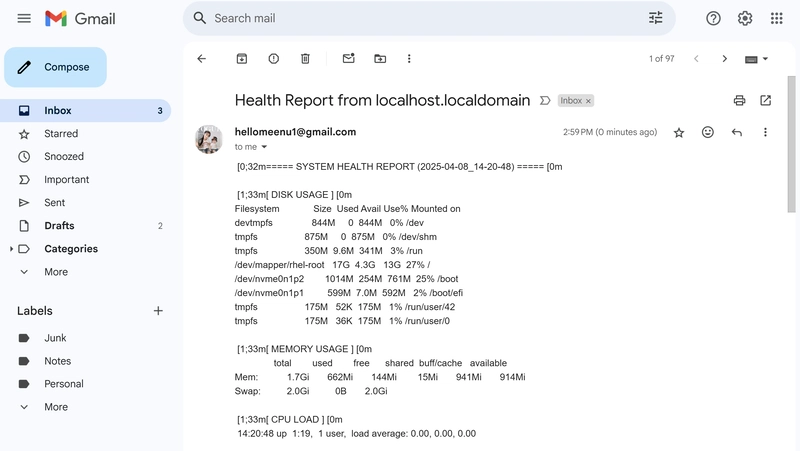📌 Introduction
This guide will help you create a professional system health monitor that:
✅ Checks critical server metrics
✅ Generates beautiful reports
✅ Sends email alerts with actionable insights
✅ Runs automatically on schedule
🔧 Prerequisites
✅ Any Linux system (Tested on RHEL, Ubuntu, Raspberry Pi)
✅ Terminal access with sudo privileges
✅ Python 3 (for email functionality)
✅ Optional: ChatGPT/Gemini access for AI enhancements
🛠️ Step 1: Create the Health Check Script
AI-Generated Base Script
Disk Health Check
Memory Check
CPU Load
📧 Step 2: Add Email Notifications
Python Email Script
NOTE: Create Gmail App Password
Go to: https://myaccount.google.com/apppasswords
Select "Mail" and "Other (Custom Name)"
Name it "RHEL Healthcheck"
Copy the generated 16-digit password
Paste it in the script above replacing your_app_password
I connected with my Gmail as below Screenshot:
Step 3. Make the Script Executable
⏰ Step 4: Automate with Cron
3.1 Daily Reports
3.2 Critical Alerts
🎨 Step 4: Enhancements
4.1 AI-Powered Recommendations
4.2 HTML Reports
🚀 Final Output Examples
Email Subject Lines:
📊 [NORMAL] Server Health - CPU 15% | Disk 60%
🚨 [ALERT] High Memory Usage - 92% used!
Sample AI Analysis:
📢 Pro Tips
Test First: Run /usr/local/bin/healthcheck manually
Debug: Check /var/log/syslog for cron errors
Slack Alerts: Replace email with Slack webhooks for team notifications
Troubleshooting Steps:
#30DaysLinuxChallenge #CloudWhisler
DevOps #Linux #RHCSA #Opensource #AWS #CloudComputing
Catch out by My LinkedIn profile
https://www.linkedin.com/in/rajpreet-gill-4569b4161/


















Top comments (0)